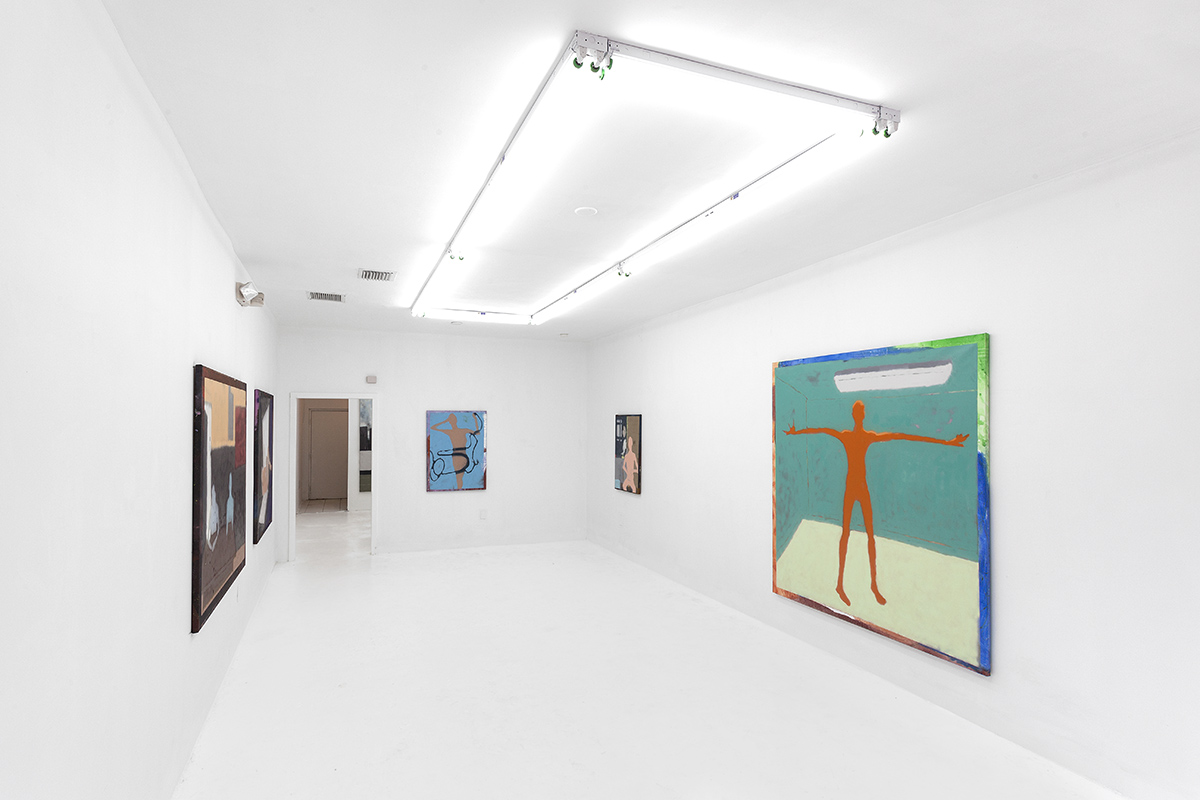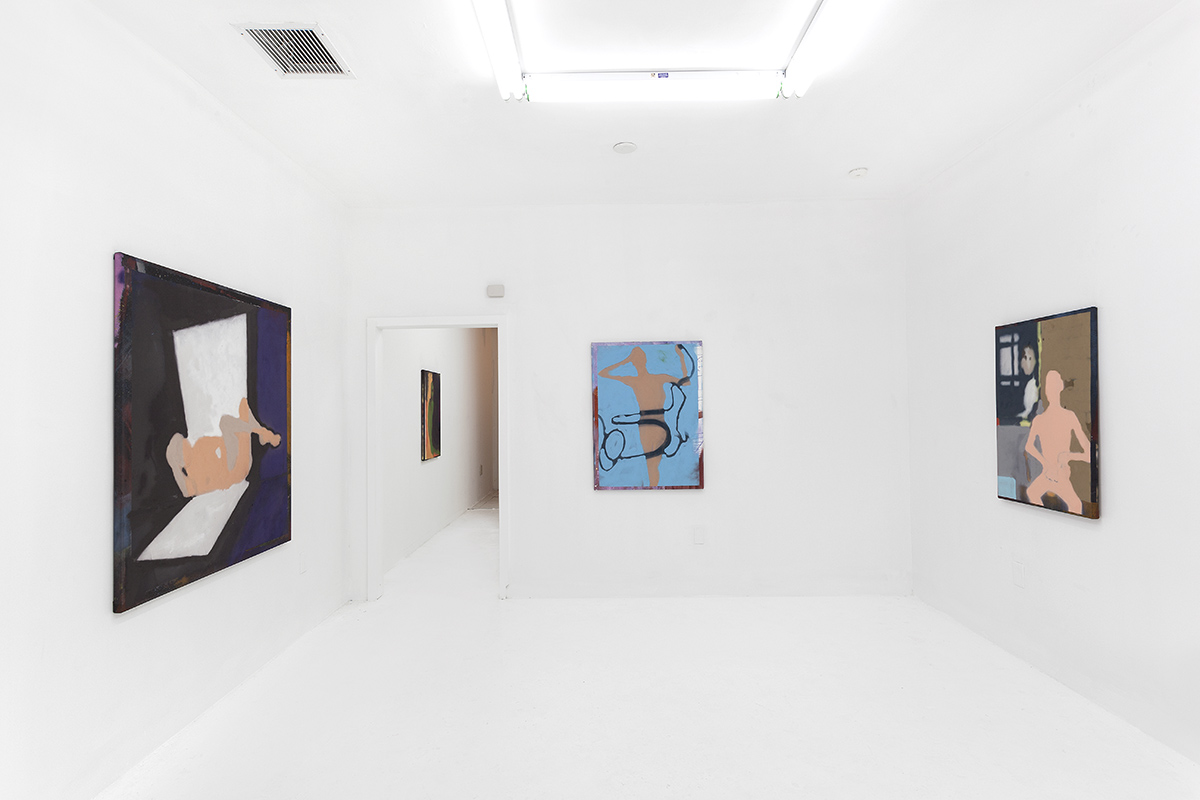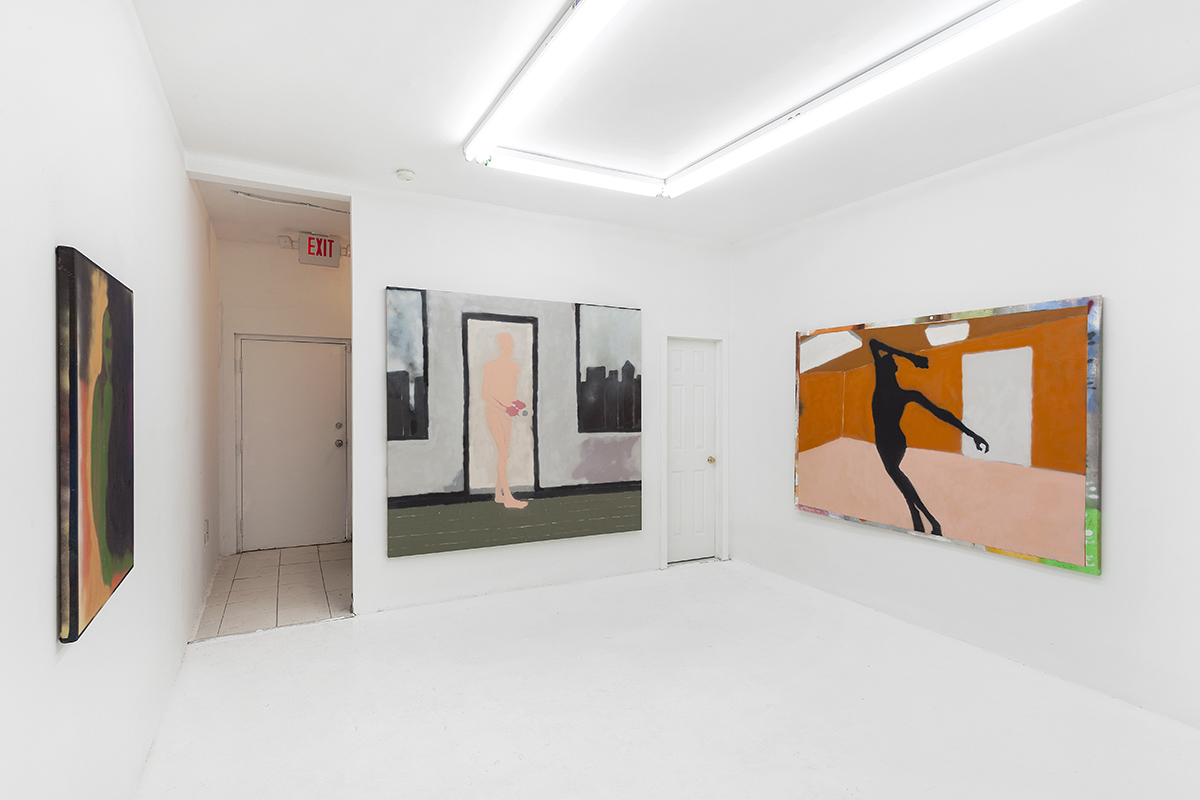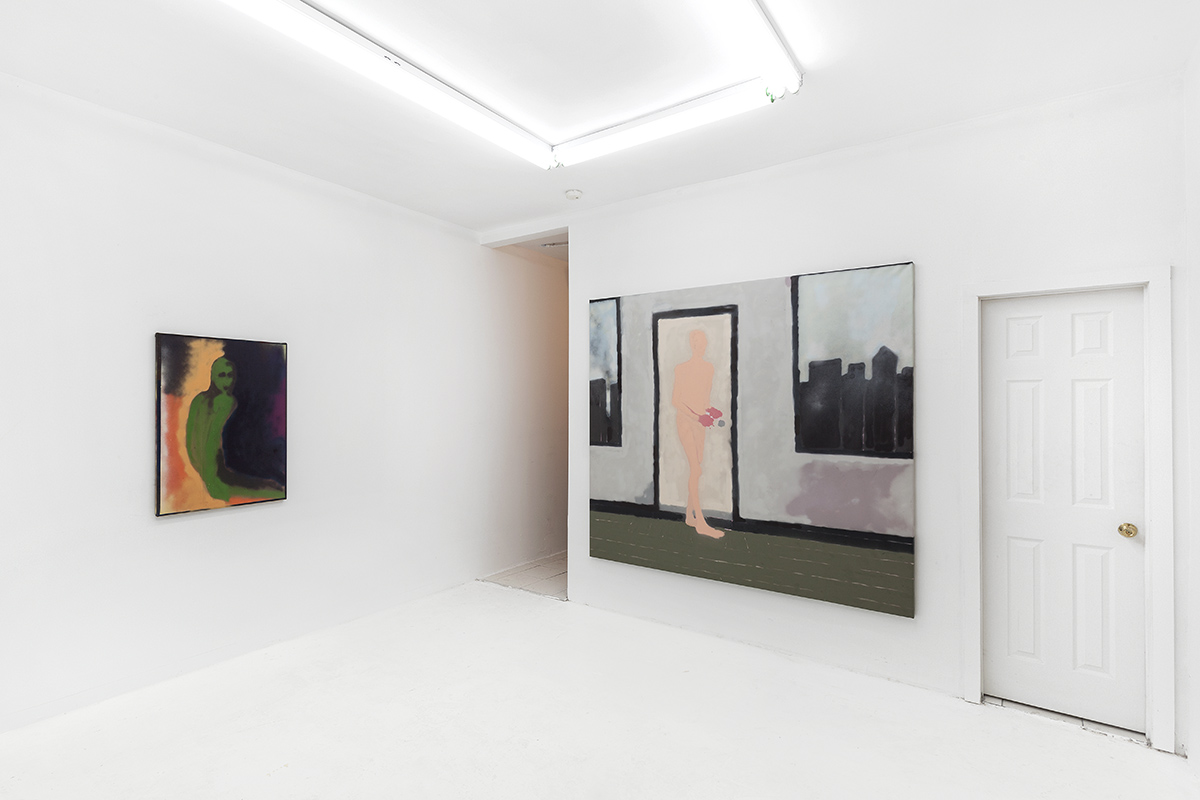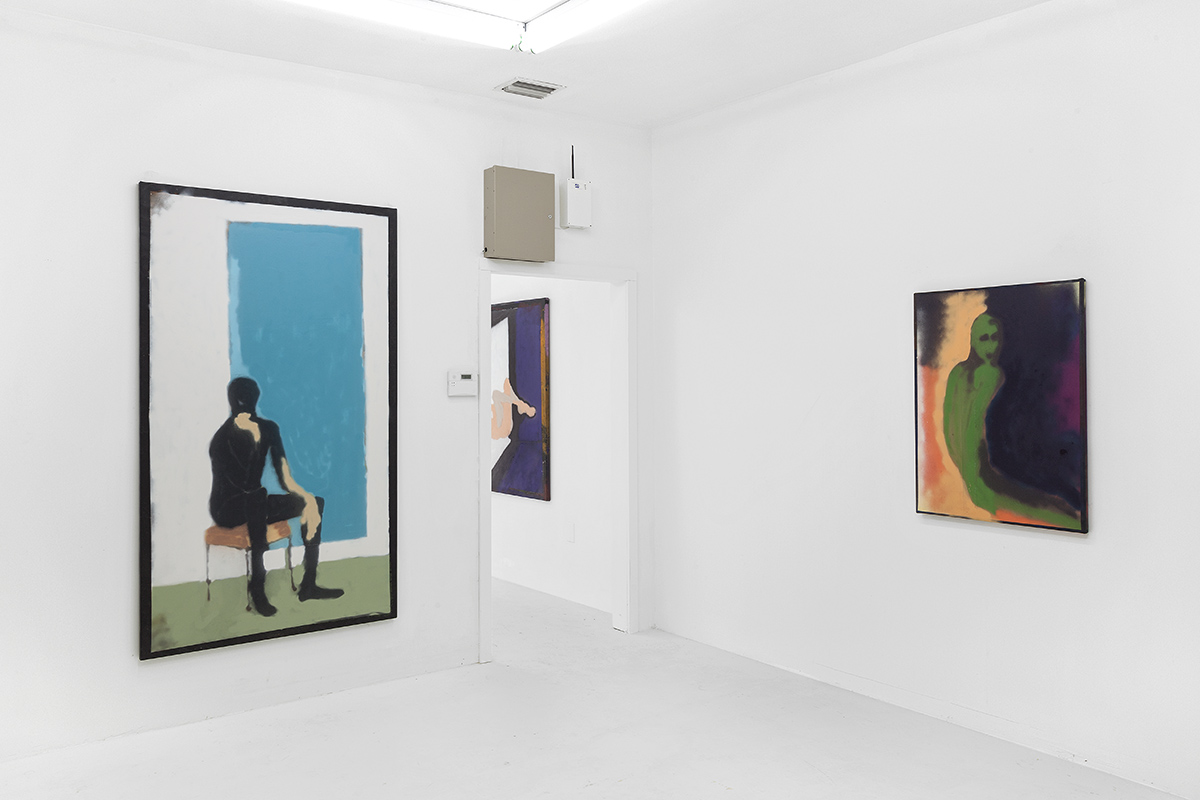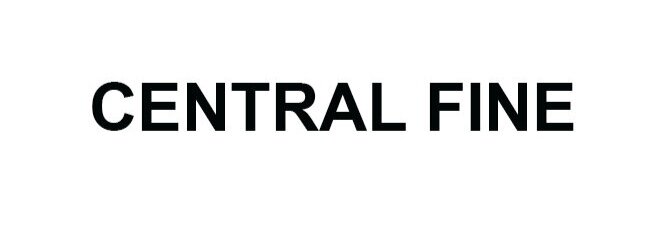HUBERT BUSH. THE RIGHT TO BE FORGOTTEN
December 5, 2014 – February 28, 2015
Opening Friday, December 5 from 7PM – Midnight
What to do when the tides of discourse and taste rise against you? What to do with a first painting solo exhibition, with a painting show that wants to be remembered and dreads to vanish? Since our archives are getting heavier and sharper, and memories are producing clearer anxieties; we are in the knot between fear and impotence, and right there, at that point, we encounter that fine term: “paradigm shift.” 1 Everyone and everything seems to want a clean slate, a new brand, in the wake of a marketing-driven tectonic shake. Well, let’s imagine that painting requested to be deleted from all search engines, to start fresh.
For instance, in this exhibition, spray painting seems to be forgetting its past, and not only we can see this in its look but also in its subject matter: no more signs ready for the outdoors, but rather, spray-painted domestic and silent images. As if the spray-gun and that speedy gesture, the one that appeared in Martin Barré’s works, or the vertical signatures often banned by other guns, have now become dense and slow. And that lovely duo conformed by speech or la parole 2 and lalangue 3 are defacing discourse while facing themselves; giving to speech and its capacity for oblivion, a face.
What if our symptomatic fatigue switched speeds and slowed down even further, and we were to use spray paint to produce images that had nothing to do with the well-known material’s behavior? What if painting could ask for the right to be forgotten 4 and start anew?
Wouldn’t it be great to bypass the tyranny of discourse, of forms, of mediums, and finally, through speech, approach a space of intensity, as the Lacanian sphinx challenged us?
In Hubert Bush’s spray paintings we see what he calls ‘afterimages,’ vibrating in the eye, once closed, resisting oblivion and ultimately coming back in the form of a déjà vu. And like ‘revenge porn’ (that poison-pen where someone would upload pornographic content into the web in order to defame you), this déjà vu, the déjà vu of painting, of texts, comes back to coat the painter with another layer of repression.
And yet, it might be that this exhibition is for Hubert Bush a first attempt to claim the right to be forgotten. If we go on-and-on mentioning the luminosity of Rothko, the tension between abstraction and figuration, or between pathos and boredom in these paintings, we will inevitably fall back into the place of mnemonic distress.
The right to be forgotten is the right to erase and reclaim autonomy, to deface the archive and face discourse 5 head-on. Ultimately, in my view, memory, painting, the past, a mark, whatever, are all entitled to re-define powder/power and its speed as vehicles or grounds. And, let’s not look at this as censorship, let’s look at this approach as another lively exchange between speech 6 and discourse.
Diego Singh, Miami; November 10, 2014
Hubert Bush, born in New York City, has a BA from University of Vermont with additional studies completed at Harvard University, Columbia University, and New York University. He has worked as a filmmaker and script-writer. His paintings have been exhibited at Gallery Met in New York and are part of the permanent collection of the Cincinnati Art Museum. He will present an upcoming exhibition at the Gavlak Gallery, Palm Beach in March, 2015.
1 Paradigm shift: a fundamental change in approach or underlying assumptions.
2 The French term parole presents considerable difficulty to the English translator because it does not correspond to any English term. In some contexts it corresponds to the English term “speech” and in others is best translated as “word.” Parole, for Miller, is drive.
3 Lalangue could be understood as the primary chaotic substrate of polysemy out of which language is constructed, almost as if language is some ordered superstructure sitting on top of this substrate.
4 ‘The right to be forgotten’ is a concept that has been discussed and put into practice in the European Union and Argentina in recent years. The issue has arisen from the desires of some individuals to determine the development of his life in an autonomous way, without being perpetually or periodically stigmatized as a consequence of a specific action performed in the past.
5 Lacanian discourse theory has to be understood primarily as a formal system (i.e. independent of any spoken word as such). A discourse exists before any concretely spoken word; even more: a discourse will determine the concrete speech act. This effect of determination is the reflection of the Lacanian basic assumption, that each discourse delineates fundamental relationships, resulting in a particular social bond.
6 Speech, is considered here in the Lacanian sense, as a symbolic exchange that links humans, and ultimately becomes the only means of access to the truth about desire “speech alone is the key to that truth”. See Lacan, Jacques. Écrits, Trans. Alan Sheridan. London: Tavistock Publications, 1977. P. 172
